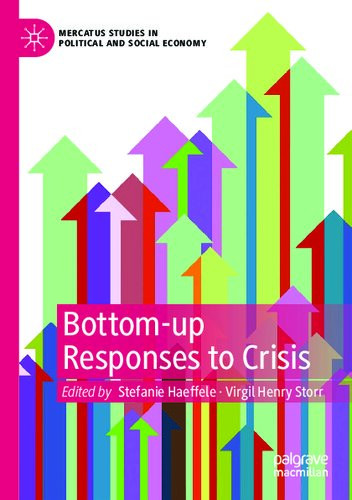

Most ebook files are in PDF format, so you can easily read them using various software such as Foxit Reader or directly on the Google Chrome browser.
Some ebook files are released by publishers in other formats such as .awz, .mobi, .epub, .fb2, etc. You may need to install specific software to read these formats on mobile/PC, such as Calibre.
Please read the tutorial at this link: https://ebookbell.com/faq
We offer FREE conversion to the popular formats you request; however, this may take some time. Therefore, right after payment, please email us, and we will try to provide the service as quickly as possible.
For some exceptional file formats or broken links (if any), please refrain from opening any disputes. Instead, email us first, and we will try to assist within a maximum of 6 hours.
EbookBell Team

0.0
0 reviewsCrises occur in all societies across world, and can be natural (such as hurricanes, flooding, and earthquakes), man-made (such as wars and economic downturns), or, often, a combination of both (such as famines, the flooding of New Orleans in 2005 after Hurricane Katrina and subsequent levy failures, and the earthquake, tsunami, and nuclear disaster in Japan in 2011). Crises cause fatalities, injuries, and property damages as well as introduce uncertainty and challenges for individuals, societies, and polities. Yet, we see individuals and communities rebounding effectively from crises all the time. How do communities go about returning to normalcy and beginning again the mundane life of every day affairs?
This edited volume looks at bottom-up responses to crises. The chapters in this volume will highlight the ingenuity and persistence of individuals and private organizations as well as discuss the possibilities, limitations, and adaptability of bottom-up responses. It argues that there are many ways that local leaders, entrepreneurs, and community members can play a role in their own recovery by examining the capabilities, feedback mechanisms, and network effects of decentralized crisis response and recovery efforts. Chapters will focus on the role of local emergency managers in the disaster management process and offer suggestions for reform and the role of businesses, citizens, and children in providing crisis response and recovery. This book will also consider theories of self-governance and nonviolent action in encouraging and sustaining bottom-up recovery.